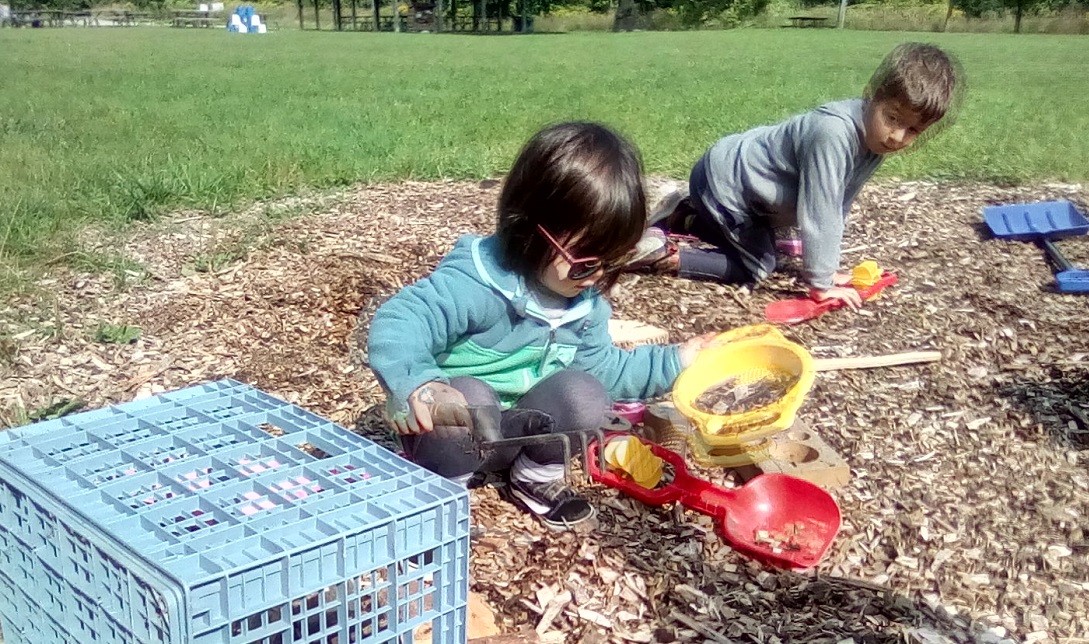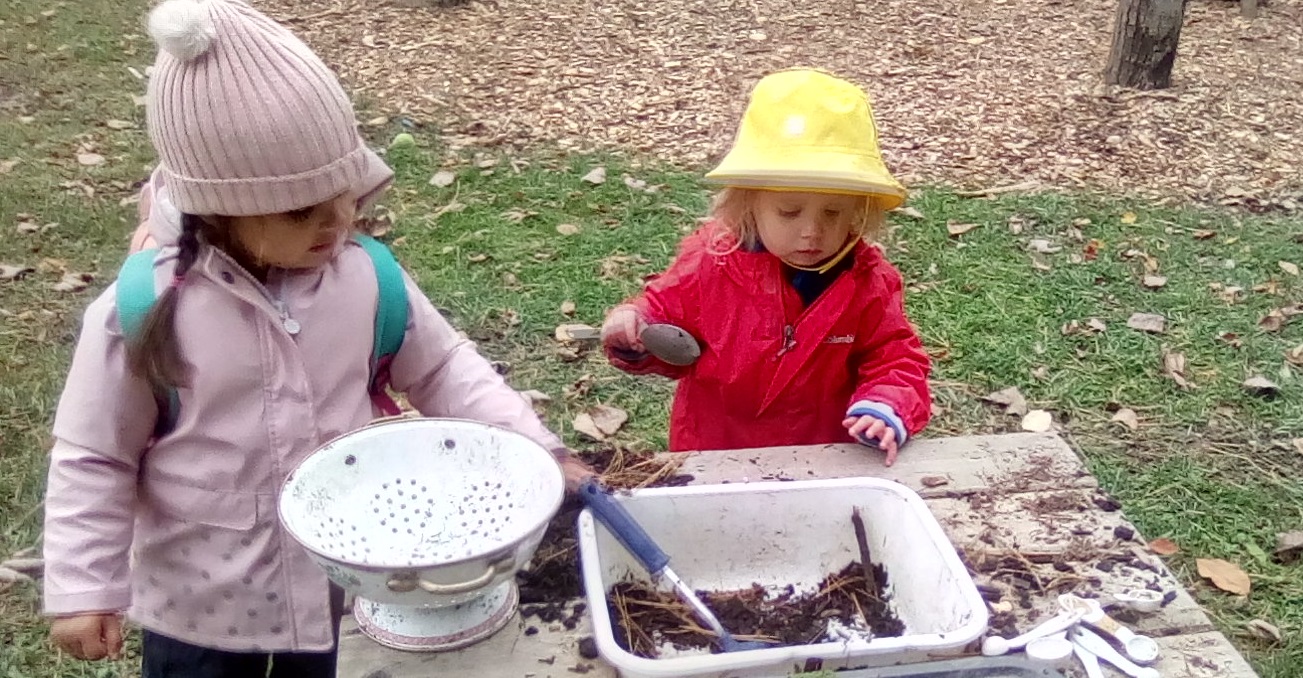Fall 2019
Posted by Victoria
Play is kid stuff — seen by many as a break from children’s real work of learning. But, as we know and have observed in our Nature School kids, play is also learning.
As parents know, each morning we set out areas of play — invitations really, to tempt the children into play. We have the mud kitchen, the art table, the pulley, the shovels and wheelbarrow, and other areas too. Everything is based on the interests of the children, the ideas we have to further learning, and the time of year (toboggans in winter, a leaf pile in the fall).
Once these areas have been set up, we wait to see what happens and let the fun begin!

By choosing freely where to play and what to do, the children exercise their decision-making skills. In doing so, they are learning to be self-aware and to reflect on and recognize their own needs. Why is this important? Because children who learn to do this at a young age are less anxious as they grow older, and are better able to cope with stress.
Sometimes children choose the riskier kinds of play, like tree climbing, balancing on a log or running fast down a hill. Because these options are a little scary, the children learn to manage their emotions, and in the process develop self-confidence. And because risky play takes physical strength and agility, it also promotes physical well-being, perseverance, and resilience.
The mud kitchen is always a popular play choice. This fall, it became a pancake restaurant, a family home, a scientific laboratory, and a turtle sanctuary. Creativity, scientific method, exploration, motor skills, and math skills, are just some of the areas of learning being encouraged.

Sometimes the children play in groups, which fosters social skills, respect, and empathy, as well as problem-solving abilities when conflicts arise.
At other times, they choose to play alone — and in doing so learn self-reliance and the ability to be calm and to concentrate. Playing alone also gives a child time and space to process new information.
Play may indeed be kid stuff — but it’s important kid stuff that leads to physical, social, emotional and cognitive developmemt. And as we see from watching your children, it is engaging, fun and full of never-ending possibilities.
